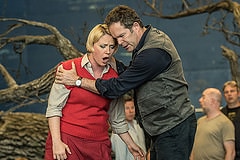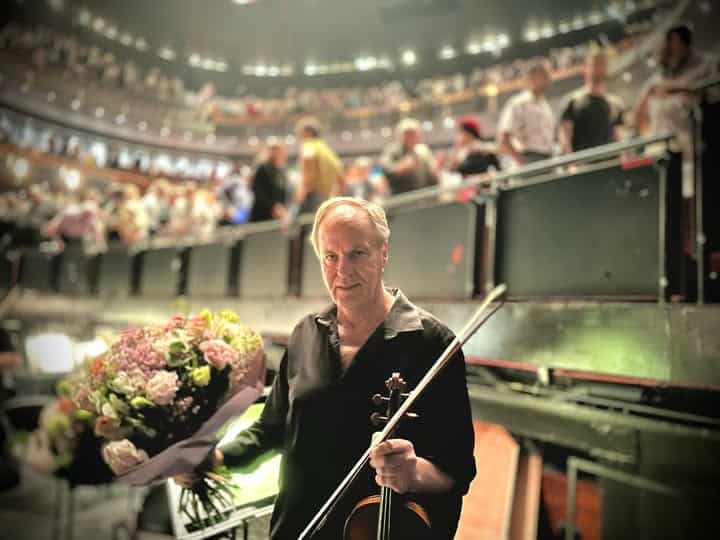Exclusive: An open letter from Kasper Holten on William Tell
mainWe have received, within hours of publication, the following response from Covent Garden’s artistic director to an article by opera singer Catharine Rogers, arguing that the rape scene in William Tell was excessive and unnecessary.

Dear all,
Let me first of all emphasise that of course the reaction of Catharine and of many others make a strong impression on me and us, and it is not something I or we take lightly. I reflect very seriously, also with my colleagues, about what has happened and what is the right course of action.
I want to make sure to underline that I have apologised for us not issuing a strong and clear enough warning. Of course, audiences should be able to make an informed choice about what they want to see or not, and if an audience member does not want to be exposed to sexual violence, it should be their choice. The scene was meant to be upsetting, of course, but we have no intention to disturb people in the way Catharine describes.
Some modifications were indeed made to the scene between the general and the first night, but it remains a very brutal and uncomfortable scene.
I want to assure everybody – in case anyone is in doubt – that we have not intended the scene to be used for cheap shock value, to provoke or to be, as someone suggested, entertaining. The scene is an attempt by the director to remind us about what tragically is the reality of war fare, and rape is discussed in the libretto of the opera. In the first act we hear that a young woman was attempted raped by the oppressors, and in act 3 the libretto says the officers force the local women to dance with them against their will. Of course the scene in the opera is much more graphic, but it fundamentally tries to draw out what is being discussed in the opera as well, and tries to put the spotlight on sexual crimes.
I will underline again that I take the reactions very seriously and that we reflect on this. It is important that we discuss what the role of art is, what we should and need to show, and whether there are other ways to achieve what we are trying to do. I think it is important that we discuss this, and I don’t think there are easy answers.
We will make sure that everyone who has booked for Tell is properly warned about the content of this scene, and I apologise again to Catharine that we had not warned her.
Some people in this thread want to discuss my aesthetic and my choice of directors and productions in a more general way. That is, of course, also a very relevant and important discussion, but a very different one, which I am happy to have but urge us not to confuse with the issue being raised by Catharine.
Let me assure you that we wanted to put the spotlight on rape as a horrible and terrifying crime and that our intention in doing this was to remind us all how this weapon is being used in warfare around the world. Whether this is the right way to do it, is a relevant and important discussion, but I want to make sure the intention is understood correctly. Anyone speculating in us doing this for the shock value to achieve publicity, I can assure you that I would really rather have been without this kind of publicity and be able to focus on the work itself and the important issues in the work and production.
So, please let us discuss method. And let us make sure we warn people so they can make a choice, just as we should always try to be honest in our advance marketing about a production. I apologise for not making that warning clear and direct enough. But it is important for me to state that our intention was to express disgust at rape and make the scene upsetting to put the spotlight on rape as a war crime.
Best wishes
Kasper
(c) Kasper Holten/Slipped Disc





Comments